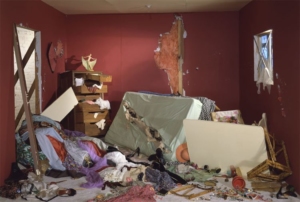
Some Comments on the Claims Made For and Against Painting
Experiences of world-disclosure are accomplished by achievements in certain long-tested forms of art—what we can call the canonical forms. These forms, like easel painting or lyric poetry, have proven over long periods of time to be the appropriate sites for this activity; but, more than that, they were practices through which the value of world-disclosure had been invented and developed through history. It was on this basis that they constituted a canon not just of exemplary works in each art, but a canon of the forms of art themselves. As such, they embodied criteria that could be effective in deciding if an activity was or was not “art.” Although the existence of the canon gave no conceptual guarantee or definition of art, it was accepted as one, de facto, based on its own history, or histories.


